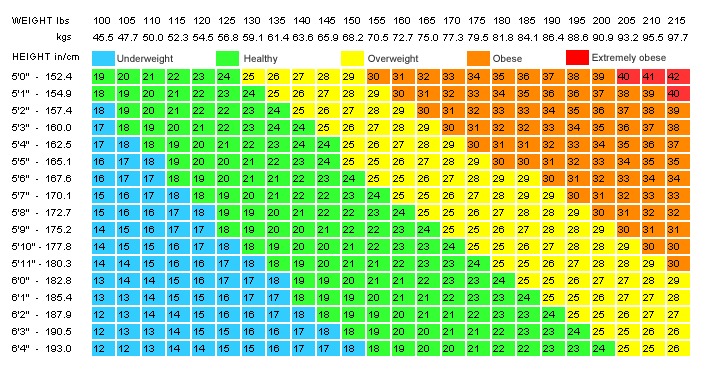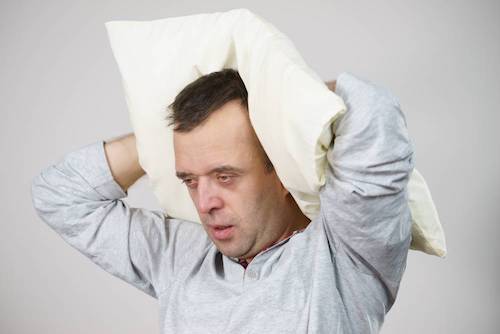Stress-eating and Getting Fat? 6 Solutions.

Stress-eating and getting fat as a result has become a worldwide trend during the coronavirus pandemic, a global study confirms, as many of us anxiously eat more junk food, exercise less and get less sleep. Sound familiar? Here are six solutions you can try.
If you’re stress-eating and getting fat during this cornaovirus pandemic, you’re not alone. Perhaps before the pandemic broke apart our way of life, you had healthy habits. Perhaps you exercised regularly, ate nutritious foods, and snacked on healthy foods in moderation.
But then SARS-CoV2 struck. It hit hard. Your world was upended. You got stuck at home during the lockdowns. Your interaction with family, friends and co-workers plummeted. The future became bleak. Your anxiety levels soared. Cookies, ice cream, potato chips and Netflix became your sedatives.
In this you’re not alone.
A global survey published in the journal Obesity confirms what you already know, and may have experienced firsthand — the coronavirus pandemic and resulting lockdowns led to dramatic changes in health behaviors, prompting anxious people around the world to cut back on physical activity, eat more junk foods, and get less sleep.
For many, this incremental change in behavior has been sufficient to put them in the high risk category for SARS-CoV-2 infection and the COVID-19 disease that it causes, such as those who were already overweight and obese.
Read Are COVID-19 and Obesity Linked?.
In the USA, 42.4% of adults are obese [1]. In Europe that obesity percentage is over 50% [2], and worldwide 39% of adults are overweight and 13% obese [3]. Just to be clear: you’re overweight if your BMI (Body Mass Index) greater than or equal to 25 (assuming average muscle mass), and obese at a BMI greater than or equal to 30.
Click here to see BMI Chart and Calculator link
Over the next few months, we face what experts nervously say might be “the most difficult time in the public health history of this nation.” That quote is from Dr. Robert Redfield, the director of the CDC. He predicts that U.S. virus deaths, which are now around 273,000, could approach 450,000 by February.
And so now is the moment to step back and review your health status and behavior. If improvements are needed, this is a mighty fine time to commit yourself to doing the best you can to protect yourself during the forthcoming winter that will bring an unrelenting surge of Covid infections. Yes, a vaccine is on it’s way, but it’s very unlikely that you will have access to it before Spring. (Check where you’ll be on the list.)
Lt. Gen. Paul Ostrowski (Ret.), who is Operation Warp Speed’s director of supply production and distribution, said during an interview with CNBC’s “The News with Shepard Smith” that everyone who wants to get vaccinated should be able to do so by June.
June is six months away. You need a plan now.
Among the behaviors to tweak are those related to what you eat, how often you move, and the quality and duration of your sleep. That’s the bottom-line advice of the study I mentioned. It was conducted by researchers at the Pennington Biomedical Research Center in Louisiana. They surveyed 7,750 adults across the globe, including people from 50 different countries and every state in the USA. The researchers found that the decline in healthy behaviors during the pandemic and widespread lockdowns was fairly common regardless of geography.
The average age of the respondents was 51, and a majority were women. Based on their body mass indexes, about a third of the people were overweight, a third were obese, and a third were considered normal weight.
Here’s a summary of the findings:
- Those who are obese were impacted the most. They had a higher anxiety level to begin with prior to the pandemic and also the largest increase in anxiety throughout the pandemic.
- Most people became more sedentary due to less daily commuting and more time spent indoors; however, even for those who did regularly exercise, it tended to be at lower intensity levels compared to before the pandemic.
- Many people said they had given in to their food cravings, resulting in increased consumption of sugar sweetened beverages, and other sugary snack foods.
- Add up 2 and 3 and inevitably you get weight gain — about 27% of the survey respondents said they had gained weight after the initial lockdowns went into effect. The figure was even higher among people classified as obese; for them: 33% said that they had gained weight, compared to 24.7% of those of normal weight. People who gained weight also had the largest declines in physical activity.
- The greatest spikes in anxiety occurred among people who are obese, perhaps because of concern that excess weight puts people at a much higher risk of being hospitalized with Covid-19.
- Social isolation can take a toll on mental wellness, evident by reported elevation in anxiety levels:
- About 20% said that their symptoms (experiencing dread and not being able to control or stop their worrying) were severe enough to interfere with normal activities.
- About 44% said that their sleep had worsened during the pandemic; on average retiring to bed an hour later, and waking up an hour later than usual.
As reported by Anahad O’Connor, staff reporter for the New York Times, Dr. Emily Flanagan, an author of the study and postdoctoral fellow at the Pennington Biomedical Research Center, said it’s unsurprising that people have engaged in less healthful habits during the pandemic, given that so many aspects of health are intertwined. For instance, stress can lead to poor sleep, which can cause people to exercise less, consume more junk foods, and then gain weight, and so on:
“Being aware of how our health behaviors change during these stay-at-home orders could help us combat that if another lockdown is enforced,” Dr. Flanagan said. “Being aware is really the No. 1 thing here.”
There were two bright spots spotted in the survey:
- 10% of respondents said that their sleep had improved since the pandemic began.
- About 17% lost weight during the pandemic. As you might imagine, these people tended to increase their physical activity levels and improve their diets.
So, what separates the majority who experienced unfavorable habits from those who improved favorable habits? I’ll opine on that next, and also suggest six solutions to the problem of stress-eating and getting fat, anxious and sleep-deprived.
How to Stop Stress-eating and Getting Fat, Anxious and Sleep-deprived
To stop the stress-eating and getting fat, anxious and sleep-deprived, the first thing to consider is to do what those bright spot people in the survey did. What they did was to use the extra time the pandemic afforded them, because of less time spent working and socializing, to focus more on eating better and exercising more.
The researchers who conducted and analyzed the survey said that those who improved healthy habits during the pandemic ate more whole fruits, and less fried foods, and expanded the recipes cooked at home, reporting that they discovered new ingredients and found new ways to make healthier foods.
As you might expect, improving behaviors such as eating better and exercising regularly reduces the anxiety and stress promoted by the pandemic that leads to sleep deprivation, which then creates a vicious circle of stress exacerbation.
We’re facing an unrelenting surge in coronavirus infections and COVID-19 disease this winter, and this must be faced without the aid of a vaccine. Don’t despair! It’s within your realm of control to prepare yourself by taking specific measures that can help prevent infection, and if infected, to help mitigate the impact to your health.
In my undeniably biased opinion, the best thing you can do given that vaccine is months away (should you decide to get it) is to enroll in my Covid Immunity Course. The next best thing is to read the following helpful posts I’ve written that can help prepare you:
- Can A Inhaled Nasal Spray Kill Covid?
- How Dreaded Covid Inflammation Is Intensified by Age and Chronic Illness
- What’s Your COVID Risk Level? Take the Test!
- Choose A Reusable Antiviral Face Mask To Protect Yourself and Others
And now to the six solutions to stop the stress-eating and getting fat, anxious and sleep-deprived.
(1) Coordinate a neighborhood recipe-sharing cook-off
Gather some neighbors, meet outside with face masks in place and trade healthy recipes. Then at a designated time, share your meals with those in the group. This practice will give you the incentive to eat more healthily simply because you made a commitment and won’t disappoint others.
(2) Coordinate a neighborhood walk-a-thon
Same ideas as above. Of course, your walking buddies need not live nearby, but the point’s the same — the social aspect combined with the commitment and desire not to disappoint will help keep you on task. At the very least, grab someone in your household or go it alone. Add hills to the walk for extra conditioning.
(3) Drink 8 ounces of water and do as many squats as possible before you eat junk food
Yes, do your penance before the sin.
The water will fill you up a bit and thereby potentially reduce the junk calories consumed, and the squats will bring glucose transporter type 4 (“GLUT-4”) to the surface of muscle cells, opening more gates for the calories to flow into. (For more in this, read my post: This Holiday, Overeat and Gain No Weight.)
(4) When feeling stressed, listen to brain sync tones
Anxiety and stress are mutually reinforcing; this makes them more pernicious. If not resolved, a vicious cycle of anxiety and stress born of negative thoughts and emotions can dominate your life: “This sucks (I feel bad). That sucks more (I feel worse). All this sucky stuff will never end (I feel worser).
Step out of the cycle, find some brain entrainment tones on YouTube on your smartphone (I like this one), plug in the headphones, lean back in your easy chair and focus on your breath. You’ll thank me later.
(5) Take adaptogens
Adaptogens are stress response modifiers, and are a good way to help reduce stress and anxiety. The three adaptogens to consider are:
- Red ginseng,
- Ashwagandha, and
- Rhodiola.
I cover these extensively in my Covid Immunity Course, but suffice to say here that there are good scientific studies that support their use for reducing stress and anxiety. For more information, read Reduce Chronic Inflammation With A Daily Mindfulness Practice and 3 Adaptogens.
Click the above links for my suggested brands.
(6) Prepare for sleep the right way
You need to shut down the amped-up anxious mind well before bedtime. From my Covid Immunity Course, click toggle below for my prescription:
7 Nighttime rituals for restful, restorative sleep
The reason to consider adopting nighttime rituals is to help ensure you get enough restorative sleep.
Restful sleep is not a luxury, but a necessity when it comes to robust health.
Deep, restorative sleep is essential for a responsive, well-regulated immune system. You need to have deep, restorative sleep to enhance your immune response to pathogens like SARS-CoV-2.
Inadequate sleep increases the risk of all infectious illness. One study found that less than five hours of sleep increased the risk of developing a common cold by 350% as compared to individuals who slept at least seven hours per night.
What about the relationship of sleep to COVID-19?
Studies show that sleep deprivation increases a series of reactions that result in activating something called the NLRP3 inflammasome, which is partly responsible for the hyperinflammatory state referred to as the “cytokine storm”.
Healthy sleep is anti-inflammatory and promotes various types of T cells that can tamp down inflammation.
Now that you know how important sleep is to help you fight off COVID-19, let’s address how to get the sleep you need with eight nighttime rituals.
Like I said about the daytime rituals, pick the low hanging fruit first. Get yourself in the mode of acquiring new habits by first choosing those that you have the least amount of resistance to do.
- Minimize mental and emotional stimuli
Whatever gets you cranked up… Avoid that.
So, before bed, don’t fill your head with news that aggravates you, or engage in topics that aggravates you.
If your mind is swirling with thoughts you can’t seem to put aside, try writing down — pen to paper — what’s disturbing you. Remind yourself that you can review the list in the morning, and deal with it then.
I say put pen-to-paper because it slows you down. It takes more time to write by hand than to type. Unless you’re a one-finger typer, using pen and paper gives you more time to dig into what you’re grappling with.
- Reduce blue light
Turn off cell phones, tablets, and all electronic devices. Engaging with screens before bedtime makes it harder for your brain to turn off.
The reason for this is that any light emitted from various screen-based devices — which is referred to as “blue light” — may delay the release of the hormone melatonin. This delay of melatonin interferes with your body clock; the circadian rhythm we reviewed earlier.
Blue wavelengths are beneficial during daylight hours, because they boost attention, reaction time and mood, but at night blue light disrupts your sleep. While it’s true that any kind of light can suppress the secretion of melatonin, blue light at night does so more powerfully.
Harvard researchers and their colleagues conducted an experiment comparing the effects of six and a half hours of exposure to blue light to exposure to green light. They found that blue light suppresses melatonin for about twice as long as the green light and shifts circadian rhythms by twice as much: three hours for the blue light vs. 1.5 hours for the green light.
In another study of blue light, researchers at the University of Toronto compared the melatonin levels of people exposed to bright indoor light who were wearing blue-light–blocking goggles to people exposed to regular dim light without wearing goggles.
The fact that the levels of the hormone were about the same in the two groups strengthens the hypothesis that blue light is a potent suppressor of melatonin. [8]
Another thing you can do to reduce blue light at night is turn off screens between one and two hours before bedtime, or use an app called F.lux.
The F.lux app makes the color of your computer’s display adapt to the time of day, warm at night and like sunlight during the day.
- Set a regular bedtime
I covered this already, but it’s worth repeating.
Just like the daytime ritual of getting up at the same time, set a regular time to go to bed. A regular and consistent sleep pattern helps ensure you’re getting the targeted number of hours of sleep every night and keeps your circadian rhythms optimized.
- Reduce stress
I address stress in the next lesson, but here I want to point out that it’s hard to get to sleep if something stressful is occupying your mind. So, if something is stressing you at your bedtime hour, you need to tamp it down.
You can try slowing down your breathing by concentrating on it, which I’ll cover later on, or listen to some relaxing music. I’ve linked to some in the References tab.
- Take an Epsom salt bath
There are three reasons to consider taking an Epsom salt bath prior to bedtime:
- If you do this regularly, you’ll be establishing in your mind the intention of proactively doing a ritual for the purpose of getting restorative sleep.
- Warm water is relaxing and may make you drowsy.
- The Epsom salt in the bath contains magnesium. One tablespoon of epsom salt has 3.4 grams of magnesium.
Let’s talk about magnesium.
By helping to quiet your nervous system, this mineral may help prepare your body and mind for sleep.
Magnesium activates the parasympathetic nervous system, the system responsible for getting you calm and relaxed. It also regulates the hormone melatonin, which guides sleep-wake cycles in your body.
Magnesium binds to GABA receptors (gamma-aminobutyric acid). GABA is the neurotransmitter responsible for quieting down nerve activity. It’s the same neurotransmitter used by sleep drugs, like Ambien.
If you choose not to bathe with Epsom salts, but want the magnesium, you can take a magnesium supplement. Magnesium can help improve sleep quality in people who have low magnesium levels — which are many of us — but it does not have a sedative effect, so you don’t need to worry about getting sleepy after taking a magnesium supplement.
The standard dose for magnesium is 200 mg of elemental magnesium, though doses of up to 500 mg can be used.
There are several kinds of magnesium. Magnesium oxide is not recommended for supplementation because it is more likely to cause intestinal discomfort and diarrhea, and is known to have less absorption than other forms.
If you take magnesium gluconate, do so with a meal to increase its absorption. Other forms of magnesium can be taken either with food or on an empty stomach.
- Take a melatonin supplement
Let’s dig into melatonin a bit more. It’s a hormone that regulates the sleep–wake cycle. It’s primarily released by the pineal gland in your brain.
As a dietary supplement, melatonin is widely used to enhance sleep, but a key reason to consider using it in the context of COVID-19 is that it inhibits NLRP3 inflammasome activation that I mentioned earlier, and it reduces airway inflammation.
Melatonin has also been identified as a potential therapeutic drug in computer modeling of the effects of SARS-CoV-2 on human cell expression.
In some countries, you need a prescription for melatonin. In others, like the U.S., melatonin is widely available in stores or online. Take around 1 to 5 mg, 30 to 60 minutes before bed. Time release melatonin capsules may be more effective at sustaining sleep throughout the night.
Start with a low dose to assess your tolerance, and then increase it slowly as needed. Since melatonin may alter brain chemistry, it’s advised that you check with a healthcare provider before use.
Remember to check the Nutraceuticals Guide for more information about melatonin, as well as all of the nutraceuticals I cover. If you’d like more information about melatonin, check out References 9 — 12 under the References tab above.
- Optimize your sleep environment
You want your bedroom to be cool, dark and quiet.
To get complete darkness, I simply use an eye mask. I find that it’s easier to put on then to go around the bedroom and pull down window shades, which still lets in ambient light from outdoor lights.
For coolness, ensure the windows are open or the blanket is light.
I don’t like earplugs; fortunately, it’s quiet in my neighborhood. If that’s not the case where you live, experiment with them.
Your Takeaway for Stress-eating and Getting Fat, Anxious and Sleep-deprived
What’s been established by a survey of 7,750 people across the globe is that the coronavirus pandemic is negatively affecting the health of the majority of respondents. An accurate description is that the pandemic has ignited stress-eating and getting fat, anxious and sleep-deprived.
That’s the bad news. The good news is that it’s within the realm of your control to break this cycle and turn the circumstances you face in this pandemic to your favor by:
- Coordinating a neighborhood recipe-sharing cook-off
- Coordinate a neighborhood walk-a-thon
- Drink 8 ounces of water and do as many squats as possible before you eat junk food
- When feeling stressed, listen to brain sync tones
- Take adaptogens
- Prepare for sleep the right way
Of course, some of these suggestions may not be palatable to you, but hopefully will stir your creative juices to come up with whatever can improve your health and outlook. If you need more ideas, check out the comments of those who read NYT’s reporter Anahad O’Connor article about the survey reviewed in this post.
Last Updated on September 29, 2022 by Joe Garma





